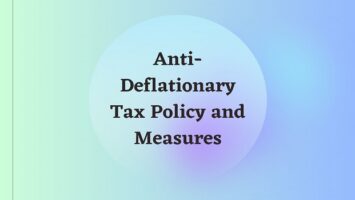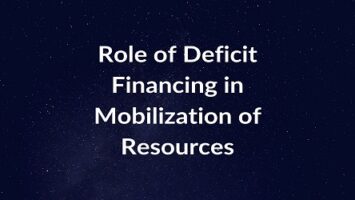Role of Taxes and Loans in Financing Development Plans:
Most under-developed countries face the problem of financing their development plans. The problem is whether the development plans should be financed through taxation or loans.
Under-developed countries are subject to acute poverty, the per capita income is very low, and the distribution of wealth is inequitable. The standard of living of the people is also low, and the taxable capacity of the people is also low, hence, the scope of additional taxation for financing development plans is limited. In such a situation, heavy taxation would hamper the very purpose of development as it will curb consumption and discourage productive incentives. Moreover, the expenditure on these projects is so heavy that it cannot be met by taxation. Hence, loans should be raised from internal as well as external sources for financing the development projects. It is important to raise loans from external sources as the internal lending capacity of underdeveloped countries is poor.
The financing of development projects through loans is also justified because these projects are productive, the benefits would be enjoyed by the future generation, and hence, the burden should also fall on them. The loans can be repaid when these projects start production. However, long-term loans should be preferred because short-term loans are nothing but the postponement of taxation for a short period.
Though, theoretically, it may be correct to finance development projects through loans practically it is unwise to depend entirely on loans. The budget surplus should also be used to finance such investments. Most economists believed that the economies of different countries would suffer greatly if economic reconstruction were not financed through budget surpluses. Moreover, inflationary conditions can be checked to an appropriate degree through surplus budgeting, generally found during the development period, because of heavy investments.
Thus, the development programme should be financed both by taxes and loans. Loans have, of course, an important place in development finance, but a part of the development programme should be financed through budgetary surpluses. It will not cause a greater real burden on the current consumption of the community than would be imposed by an equal amount of public borrowing.









Comments (No)